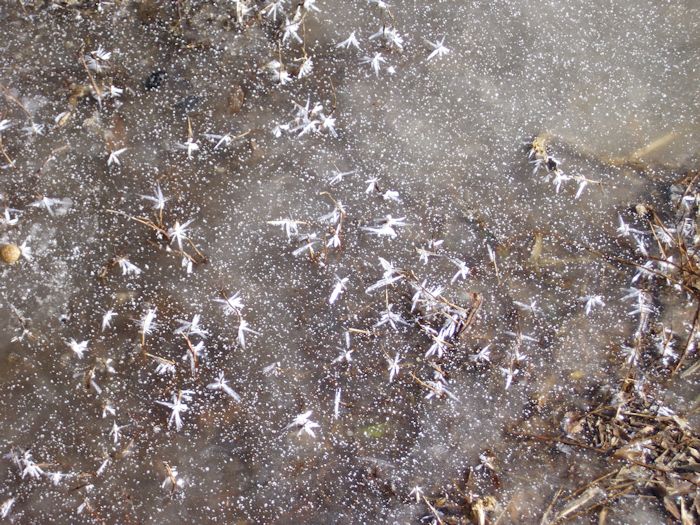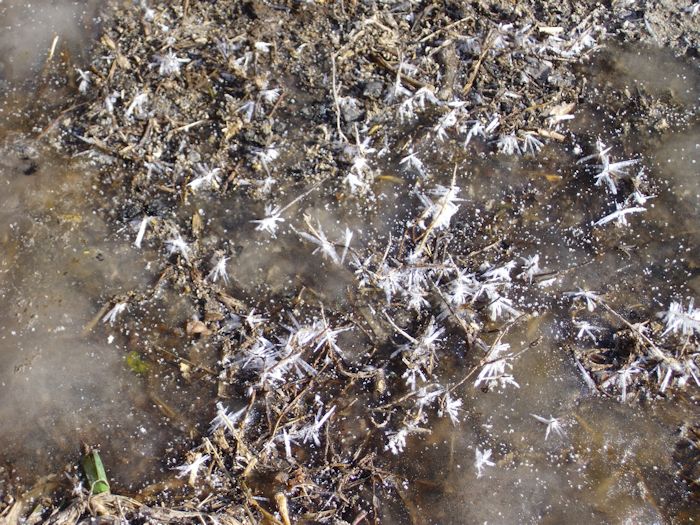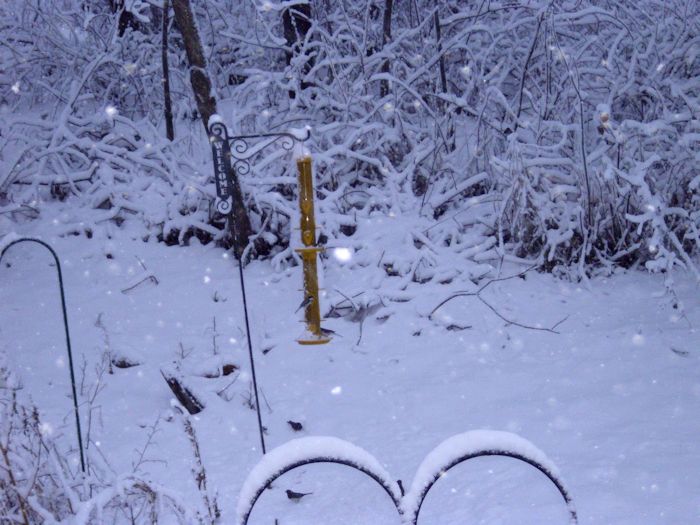Self-sufficiency involves a certain level of animal control no matter where you live. A weasel, raccoon, or opossum (amongst others) can make short work of your meat chickens, laying hens, or rabbits. Unfortunately, the literature on animal control is lacking. Even when you review many self-sufficiency books, it’s as if the authors purposely avoid the topic. When you do find information on the topic, it’s often biased or outright incorrect. Our experiences when we first moved here were frustrating in the best of times because we lacked animal control experience. When the deer weren’t eating our trees, the raccoons were feasting on our chickens.
We do have some significant animal control issues at times because we live next to a relatively big wooded area. Even though the woods look empty quite a bit of the time, there are animals galore in it. Of course, we have many of the same animals that appear in city parks, such as squirrels. Except for chewing holes in our birdhouse and occasionally through the siding on our home, squirrels present few problems. However, there are other animals that are much harder to control and they can cause serious damage at times.
Many sources recommend live trapping animals and moving them somewhere else, which sounds like a fine idea until you consider the repercussions of such a decision. Of course, there are consequences for the animal, who has now been made homeless and may be in some other animal’s territory. In some cases, moving the animal is a death sentence at the hands of a larger member of the same species who will simply do away with the interloper. The consequences for someone like me are also unpleasant because your problem is now my problem. In short, live trapping and moving an animal solves the problem if you can be certain that the animal will end up in a friendly environment far enough from humans not to cause trouble. It might be a better idea to consider giving the responsibility to someone else. If you’re struggling with certain animals on your property, it is often safer to consider calling out some wildlife control professionals to make sure the animal is removed in the most humane way possible. This should keep everyone happy and should limit the wildlife that comes near your property.
Generally, we try to shoo animals away when we can. If you make the animal feel unwelcome enough, it’ll go somewhere else. Some animals will simply ignore you. Skunks are an obvious example and personally, I stay as far away from them as possible (not that we’ve ever had a serious problem with skunks, except for the time our dog got sprayed by one). Opossums are generally inclined to ignore humans as well. However, a few nips from a dog generally convinces them to go in some other direction.
Sometimes shooing doesn’t work, so then we try barriers-either physical or scent. A fence around young trees or blueberry bushes will generally keep deer away. We’ve considered putting a deer feeder out in one of our fields so the deer eat that, rather than our trees and bushes. I didn’t know much about deer before looking on Feedthatgame.com but I’ve learned a lot of new things about deer which I’m keen to implement. However, rabbits, mice, voles, rats, and other animals will simply burrow under the fence to get at the delicious young plants unless you bury the fence about foot or so deep in the soil. Scents also have a powerful effect on animals, but you must reapply them regularly, especially after a rain. Soap does work for deer, while human or other barrier scents work for rabbits much of the time.
Passive barriers might not work in all cases, so then you have to resort to active barriers. To get our grapes to grow, we actually stationed a dog next to the young plants one season. It was an extreme sort of barrier, but the dog seemed to enjoy the change in duty and the grapes have now grown so that none of the local animals have much interest in them. We always station a dog next to our chicken tractors because racoons and weasels aren’t easily dissuaded from enjoying a chicken dinner. Even with a dog stations next to the cages, you need a strong cage to avoid predation by hawks and other larger predators.
Most of our efforts at animal control involve deterrence of some kind. We’ll keep experimenting until we find something that that animal doesn’t like. Unfortunately, sometimes there is nothing else to do but to get rid of the problem by killing the problem animal. It’s always our last option and we do it with a great deal of remorse. The other day I encountered a situation where an opossum had chewed through our rabbit cage, partially eaten the rabbit inside, and was busily working at getting to the rabbit in the next cage. (The same opossum had eaten some of our eggs the day before, so it was a repeat offender.) Shooing the opossum didn’t work and it didn’t seem to want to play dead either (a state in which you can move the opossum out of harm’s way). So, I ended up killing it. We use the fastest, most humane method possible. I offered the opossum to our local fox at her den in the woods (wasting anything is against my personal beliefs).
Animal control requires experimentation and a good deal of thought. The animals aren’t pests; they’re simply trying to earn a living in the only way they know how. We all know that they can be annoying, especially when they invade our personal space, but they’re only doing what they need to do to survive. Like we do. Even if it means that you have to look for a company like Apex Bird Control, (https://www.apexbirdcontrol.uk/service/guano-clearance-southampton) because some birds have decided to leave their droppings on your building, and you need to get it off before it attracts the wrong type of pests, then that is what you should do. Yes, the situation isn’t ideal, but we should let them off every now and then, right? So that’s why we need to find a way to effectively control them. Deterrence is always preferable to killing, but sometimes you do need to kill an animal because you have no other choice. Let me know your thoughts on animal control at [email protected].






